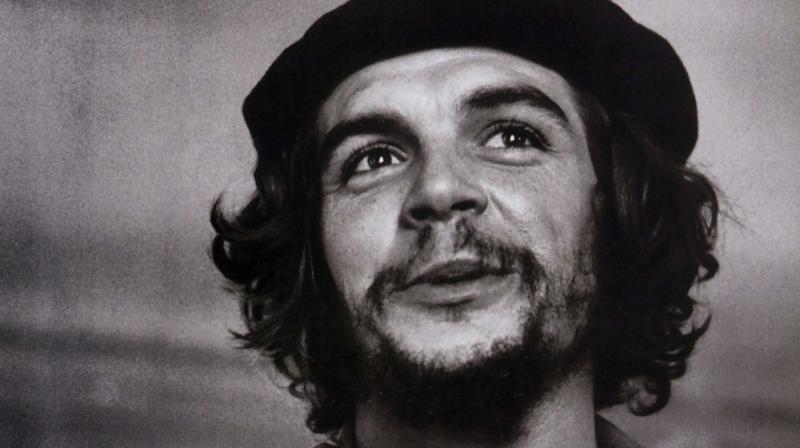Che Guevara, icon of the millennium
The Cuban revolutionary's appeal has not faded with the passage of time; he is still hero to millions.

The Cuban Revolution made him a legend. Eight years later he was dead. But before he was shot dead in Bolivia on October 9, 1967, Che Guevara had already imprinted himself on the psyche of millions of youngsters the world over.
His was the face that launched a thousand revolutions. His cigar-chewing profile, his unkempt hair and straggly beard, his tilted beret, his military fatigues, his passionate address at the United Nations, his lifelong hatred of imperialism, his secret mission to the Congo in 1965, all these and more are intimately familiar to generations of idealists in God’s Own Country and elsewhere. Che was an Argentine doctor who discovered a far nobler profession – that of the eternal search for justice, equality, and freedom. Revolution was his export commodity, and guerrilla warfare his chosen methodology. Guided by the noble goal of redeeming an entire continent, Che effectively transcended nationality. Rejecting power and privilege he wholeheartedly embraced the hard life. And he died for his beliefs.
Much has been written by and about Che. Was he a coldblooded killing machine as his detractors in the West insisted? Or the most complete human being of our era as Jean Paul Sartre said? Did he persuade Russia to park nuclear warheads on Cuban soil? Did Che Guevara and Fidel Castro bring the world to the brink of World War III? The Motorcycle Diaries gives us the first glimpse of Che’s daredevil spirit and his penchant for adventure. But nothing in the book prepares the reader for the grand metamorphosis that created the world’s best known guerrilla fighter.
‘Reminiscences of the Cuban Revolutionary War’, one of Che’s masterpieces, was penned in 1963. Talking of his first days on Cuban soil, when all but 15 of the 82 guerrillas who had made the perilous sea crossing from Mexico had already been killed in combat, he wrote, “I immediately began to think of the best way to die, since in that minute all seemed lost. I remembered an old Jack London story in which the hero, aware that he is about to freeze to death in Alaskan ice, leans against a tree and prepares to die with dignity. That was the only thing that came to my mind.”
Che’s efforts at dentistry are recounted with rib-tickling humour. “Besides the meagreness of my skill, we had no anaesthetic, so I frequently used ‘psychological anaesthesia’ – a few harsh epithets when my patients complained too much about the work going on in their mouths.” There’s more: “In the midst of the smoking ruins we found nothing but some cats and a pig; they had escaped the destructive fury of the invaders only to fall into our gullets.” If Che hadn’t become a guerrilla commandant he could easily have been a best-selling author. He was such a prolific writer – and he had so much to say.
Che’s sparkling wit is surpassed only by his keen social consciousness and sharp intellect. “Chile produces 20% of the world’s copper, and in these uncertain times of potential conflict copper has become vitally important because it is an essential component of various types of weapons of destruction.” He adds tongue in cheek, “The biggest effort Chile should make is to shake its uncomfortable Yankee friend from its back...” A chronic asthmatic from early childhood, Ernesto Guevara de la Serna had to decide whether to be a victim or a survivor. He decided he would overcome. He practised sports, swimming and riding. In 1947 he evaded military service by having cold shower before turning up at the barracks for his medical examination, knowing full well that it would trigger a severe asthmatic attack. Quite predictably, he was declared medically unfit!
When the Revolution triumphed Che became head of the National Bank of Cuba. There is an amusing story relating to his appointment. During a core group meeting Castro enquired whether any of the attendees were economists. Che raised his hand. Castro remarked, “I didn’t know you were an economist.” Che replied, “Oh, I thought you said ‘communist.’” And that’s how he landed the job. Che’s appeal has not faded with the passage of time. He remains an enduring icon, a universal symbol of resistance to oppression. Everywhere in the world we come across Che Guevara T-shirts, key chains, mugs, and dozens of saleable products, churned out by a predominantly capitalist system. After all, no country has produced another like him.

